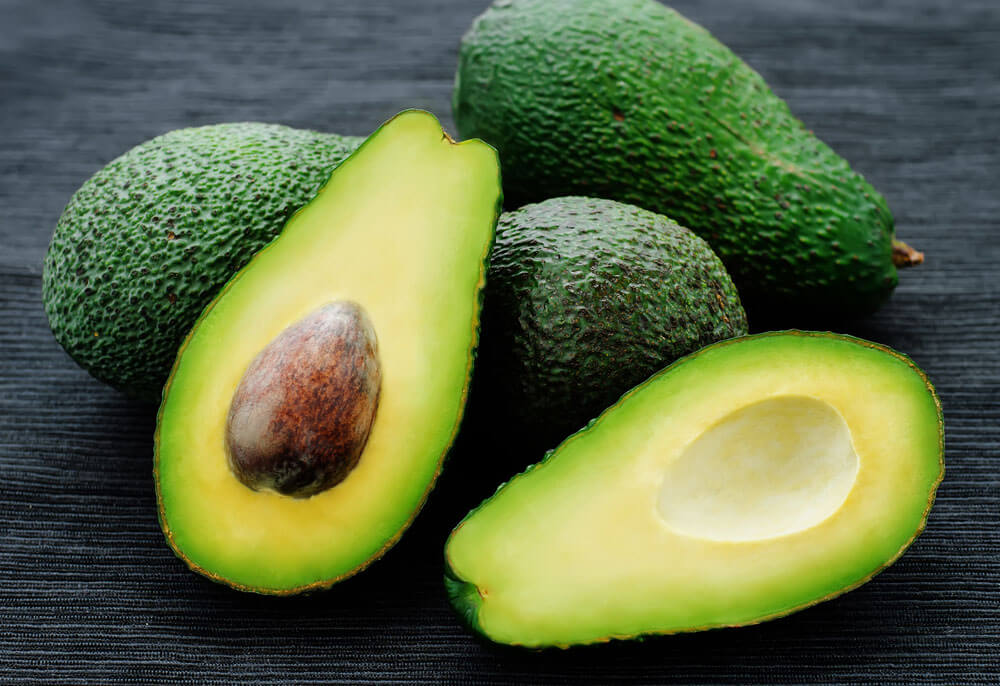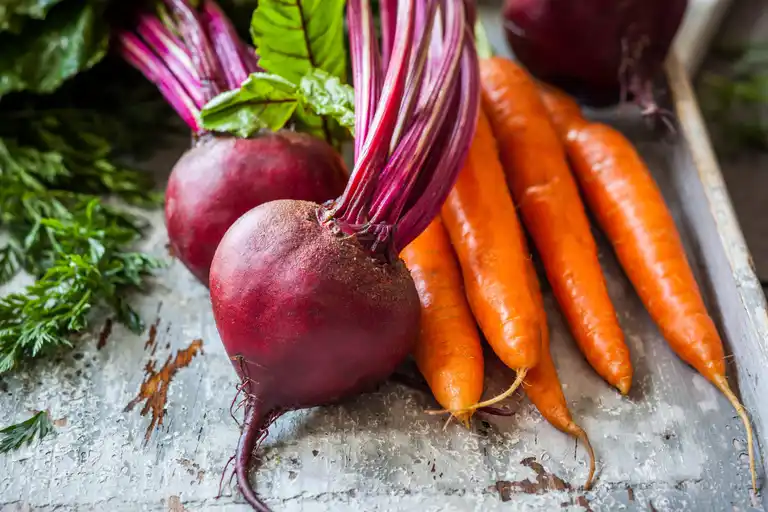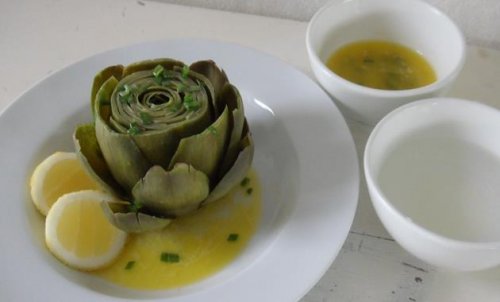Seven Foods to Fight Liver and Pancreas Inflammation


Written and verified by psychologist Valeria Sabater
A healthy pancreas and liver are crucial for your digestive system to function properly. They also play an important role in the synthesis of fats and digestive enzymes.
However, the pace of modern life, packed schedules, and processed food that promises to save you time don’t help in maintaining the health of these two organs.
A healthy diet isn’t just important for maintaining a balance in your liver and pancreas. It can also alleviate inflammation and restore them to their optimal condition.
Your entire digestive system, not just your pancreas and liver, benefits from a diet based on whole foods, as unprocessed as possible. This will have a direct and positive effect on your overall well-being.
Staying active, avoiding drugs and alcohol, reducing your sugar consumption, and eating more fruits and vegetables are the first steps toward a healthy pancreas and liver.
There are also certain foods that we recommend incorporating into your diet because of their nutritional content. Here are seven of them.
1. Beets and carrots

Liver inflammation, known as hepatomegaly, is a condition with various causes. It’s best to see a specialist if you think you might have this kind of problem.
However, a healthy diet is crucial. We recommend you include natural beet and carrot juice. Thanks to the high levels of betaine found in beets, it can help your pancreas and liver function properly. Try this healthy recipe.
Ingredients
- One beet.
- One carrot.
- Five tablespoons of lemon juice (50 ml).
- One cup of water (200 ml).
Preparation
- Wash the beet and carrot.
- Cut them into smaller pieces so they’ll be easier to blend.
- Add the water and lemon juice
Drink this in the morning. It’ll make you feel great.
You might also be interested to read: 7 “Innocent” Habits That May Cause Hormonal Changes
2. Green tea
Among the many properties and health benefits of green tea is its ability to help reduce inflammation in your liver and pancreas. In addition, the catechins in green tea help improve the way these organs function overall.
Green tea also helps reduce fat in your liver and can help it regenerate faster. This is due to its high antioxidant content.
However, you shouldn’t drink more than one cup a day.
3. Avocados
Avocados are rich in glutathione, a non-protein tripeptide that’s derived from amino acids and helps reduce toxins in your liver and pancreas.
Plus, don’t forget that avocados are rich in monounsaturated fats, also known as ‘good fats’.
They’re beneficial for your artery walls and divert bad cholesterol (LDL) so that it’s more easily metabolized by your liver.
You might also like to read: Teas That Fight Digestion Problems
4. Olive oil
Organic cold-pressed oils, like olive oil, hemp oil, and flaxseed oil, are great allies for your liver and pancreas.
Nevertheless, you should only eat them in moderation and as naturally as possible. For example, a drizzle on a salad or wholewheat toast.
These oils can help reduce inflammation in your liver and pancreas, purify them of harmful toxins, and optimize your whole body.
5. Alternative grains: millet, quinoa, and buckwheat
When we say ‘alternative grains’ we mean sources of fiber, protein, and minerals we rarely tend to include in our regular diets. However, despite their deceptively small size, these kinds of grains contain many hidden benefits.
Millet, quinoa, and buckwheat are great examples of this food group.
These grains contain enzymes that are good for your digestion, reduce inflammation, and have a positive effect on your cholesterol levels and your heart.
Nowadays, it’s really easy to find these delicious grains in the supermarket and health food stores.
6. Artichokes

They’re good for your pancreas and liver. They also stimulate the function of your gallbladder.
Artichokes also promote the proper digestion of fats, are a powerful antioxidant, and help combat a sluggish or fatty liver.
Try having artichoke for dinner, seasoned with a little vinegar, olive oil, and lemon juice.
7. Papaya
Lastly, there’s papaya. This is much more than a delicious tropical fruit that improves your digestion.
In fact, thanks to its high levels of flavonoids like cryptoxanthin, it reduces bad cholesterol levels (LDL), slows cellular oxidation processes, and can reduce liver and pancreas inflammation.
You should eat this fruit anytime you get the chance. Your body will thank you!
All cited sources were thoroughly reviewed by our team to ensure their quality, reliability, currency, and validity. The bibliography of this article was considered reliable and of academic or scientific accuracy.
- Baladia, Eduard, Basulto, Julio, Manera, María, Martínez, Rodrigo, & Calbet, David. (2014). Efecto del consumo de té verde o extractos de té verde sobre el peso y la composición corporal: revisión sistemática y metanálisis. Nutrición Hospitalaria , 29 (3), 479-490. https://dx.doi.org/10.3305/NH.2014.29.3.7118
- Cruzado, Martín, Pastor, Ana, Castro, Nino, & Cedrón, Juan Carlos. (2013). Determinación de compuestos fenólicos y actividad antioxidante de extractos de alcachofa (Cynara scolymus L.). Revista de la Sociedad Química del Perú, 79(1), 57-63. http://www.scielo.org.pe/scielo.php?script=sci_arttext&pid=S1810-634X2013000100008&lng=es&tlng=.
- García-Rodríguez, MC, Vilches-Larrea, RE, Nicolás-Méndez, T., & Altamirano-Lozano, MA. (2012). El té verde en la quimioprevención in vivo del daño genotóxico inducido por metales cancerígenos (cromo [VI]). Nutrición Hospitalaria , 27 (4), 1204-1212. https://dx.doi.org/10.3305/nh.2012.27.4.5672
- Gaucher, C., Boudier, A., Bonetti, J., Clarot, I., Leroy, P. y Parent, M. (2018). Glutatión: propiedades antioxidantes dedicadas a las nanotecnologías. Antioxidantes , 7 (5), 62. https://www.ncbi.nlm.nih.gov/pmc/articles/PMC5981248/
- Lama Toro, Alexis. (2018). El debate sobre la importancia del colesterol LDL y el uso de estatinas. Revista Chilena de Cardiología , 37 (3), 217-219. https://dx.doi.org/10.4067/S0718-85602018000300217
- Leiva, Ana María, Martínez, María Adela, Cristi-Montero, Carlos, Salas, Carlos, Ramírez-Campillo, Rodrigo, Díaz Martínez, Ximena, Aguilar-Farías, Nicolás, & Celis-Morales, Carlos. (2017). El sedentarismo se asocia con un aumento de los factores de riesgo cardiovascular y metabólico independientes de los niveles de actividad física. Revista médica de Chile , 145 (4), 458-467. https://dx.doi.org/10.4067/S0034-98872017000400006
- Lenzi de Almeida, Kátia Calvi, Spreafico Fernandes, Flávia, Teles Boaventura, Gilson, & Guzmán-Silva, Maria Angélica. (2008). EFECTO DE LA Semilla de Linaza (Linum Usitatissimum) SOBRE EL CRECIMIENTO DE RATAS WISTAR. Revista Chilena de Nutrición , 35 (4), 443-451. https://dx.doi.org/10.4067/S0717-75182008000500007
- León Cam, Juan José. (2017). El aceite de Cannabis. Revista de la Sociedad Química del Perú, 83(3), 261-263. http://www.scielo.org.pe/scielo.php?script=sci_arttext&pid=S1810-634X2017000300001&lng=es&tlng=es.
- Souza, PALD, Marcadenti, A. y Portal, VL (2017). Efectos de los compuestos fenólicos del aceite de oliva sobre la inflamación en la prevención y tratamiento de la enfermedad arterial coronaria. Nutrientes , 9 (10), 1087. https://www.ncbi.nlm.nih.gov/pmc/articles/PMC5691704/
- Zaveri, N. T. (2006). Green tea and its polyphenolic catechins: Medicinal uses in cancer and noncancer applications. In Life Sciences. http://doi.org/10.1016/j.lfs.2005.12.006
- Perea, J., & Subirats, J. (2005). La digestión. In Biología. ESO.
- Posada, A. (2016). Las causas. ATLAS DE DIA.
This text is provided for informational purposes only and does not replace consultation with a professional. If in doubt, consult your specialist.








